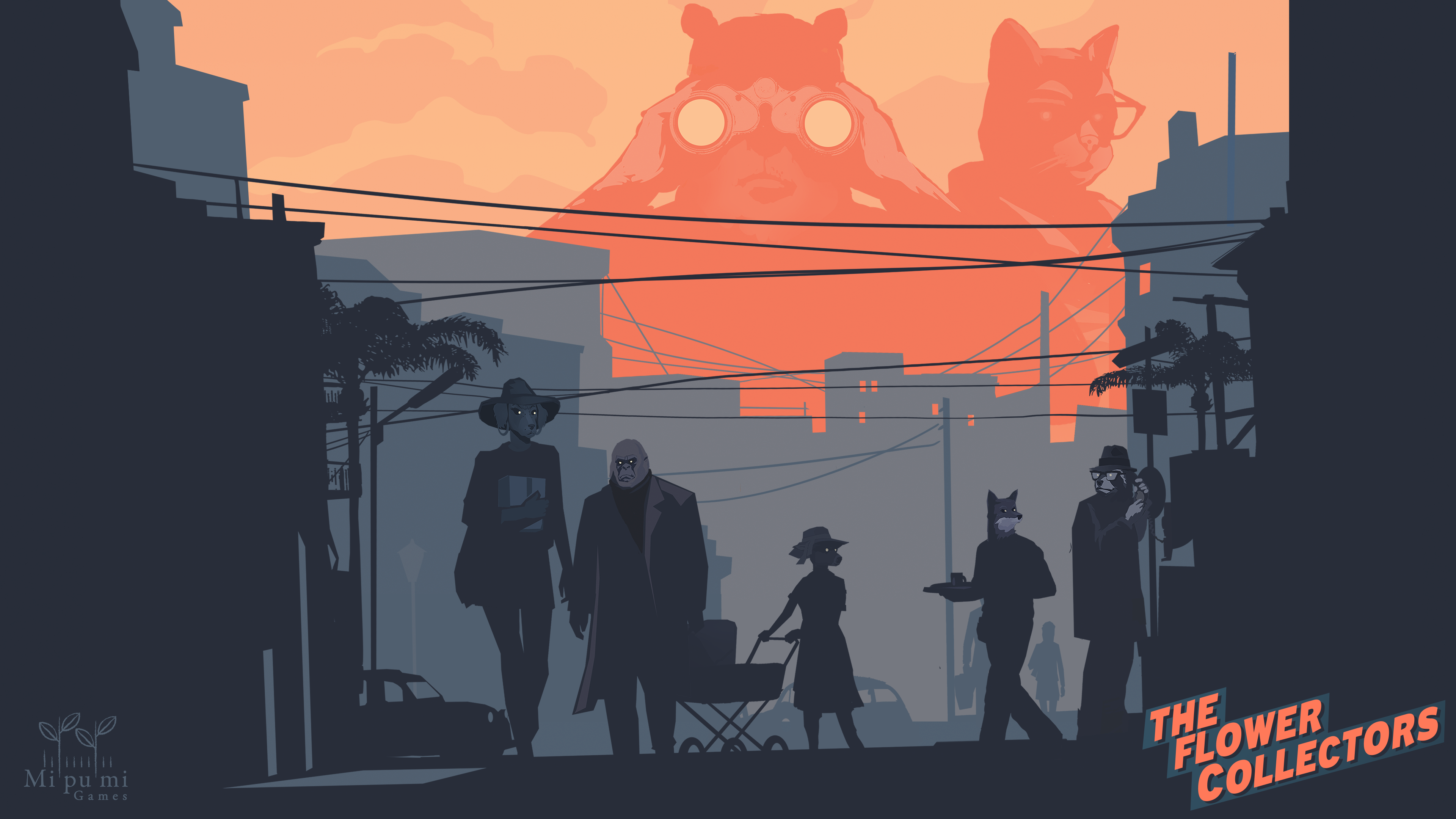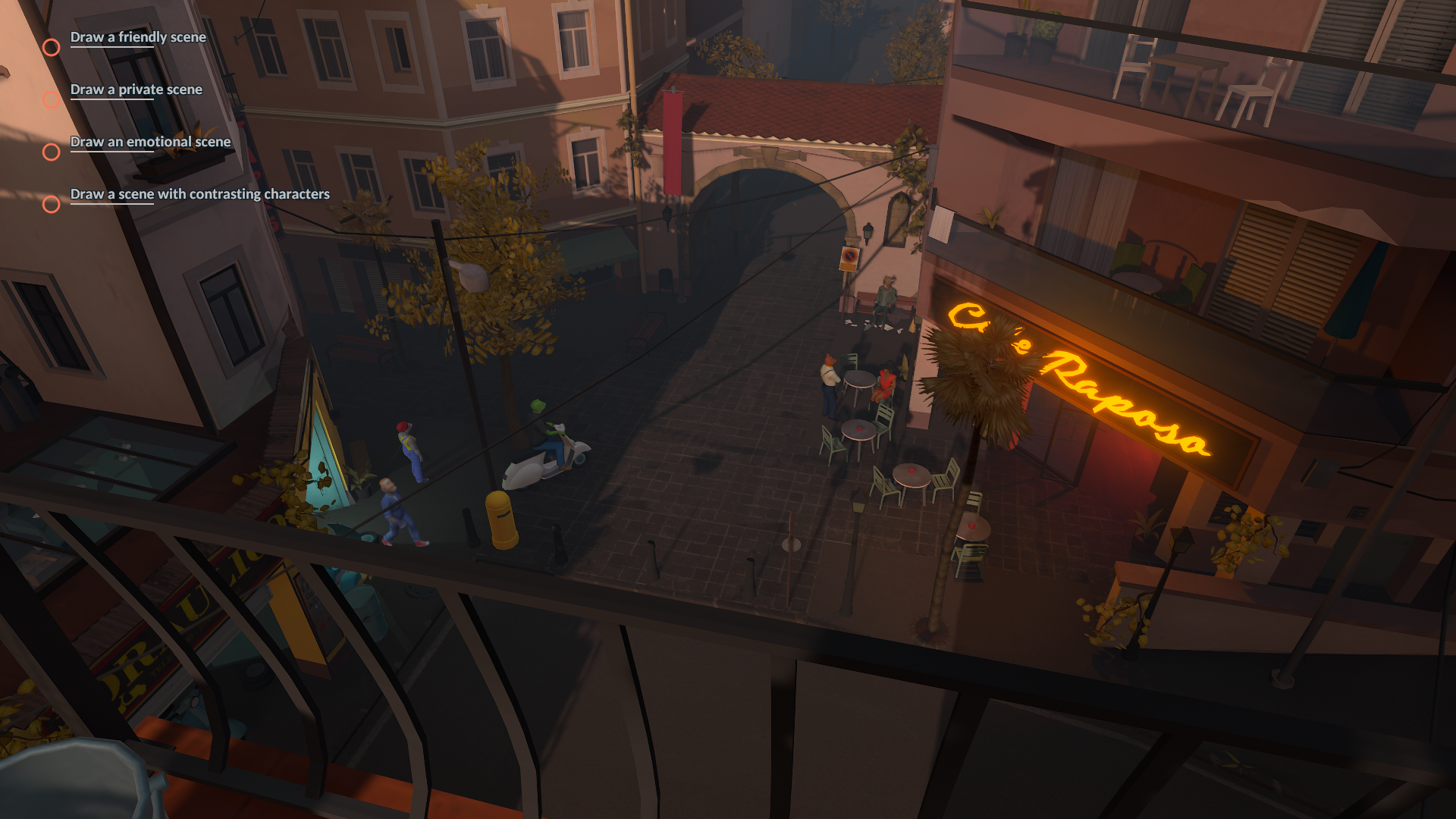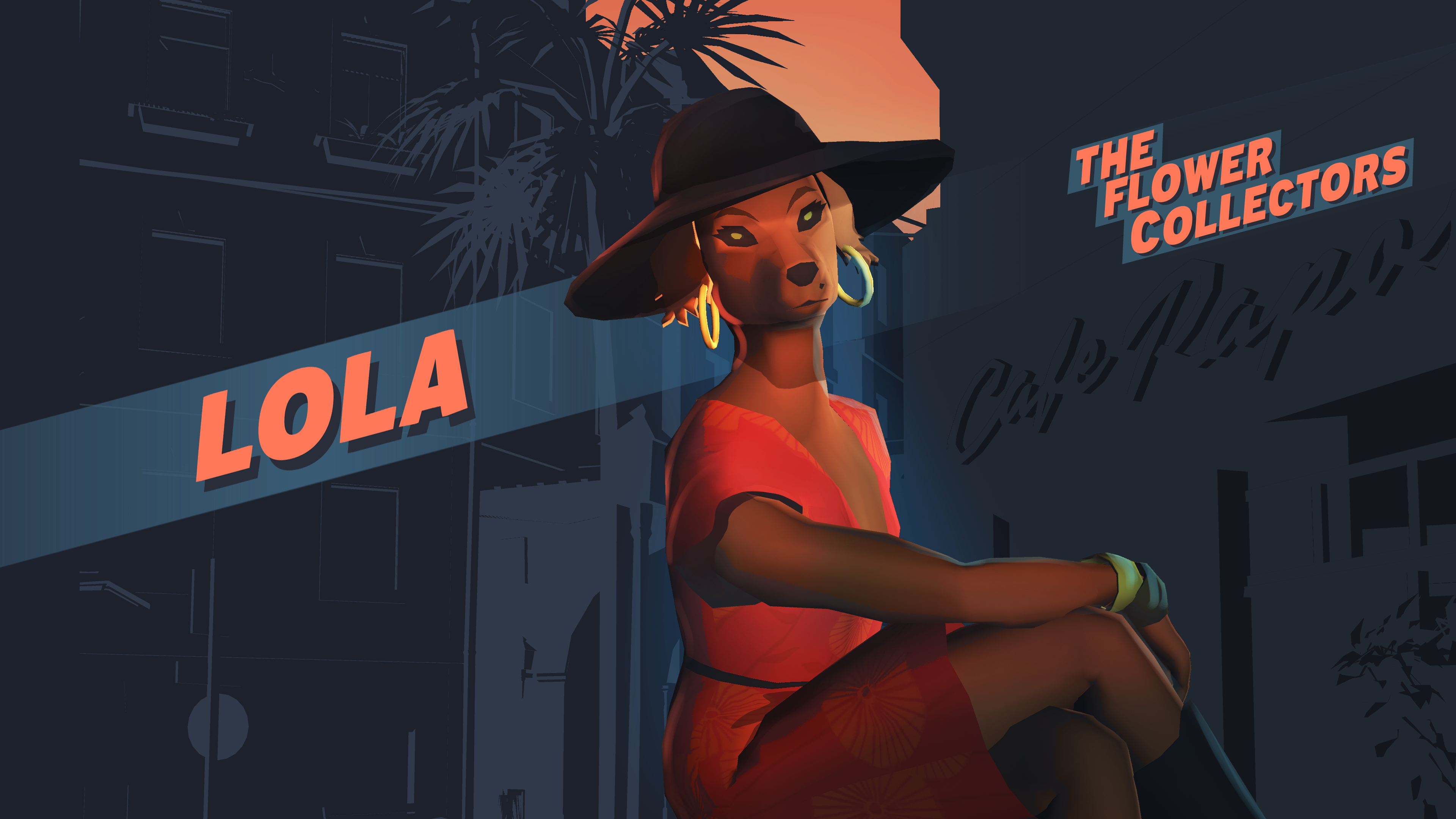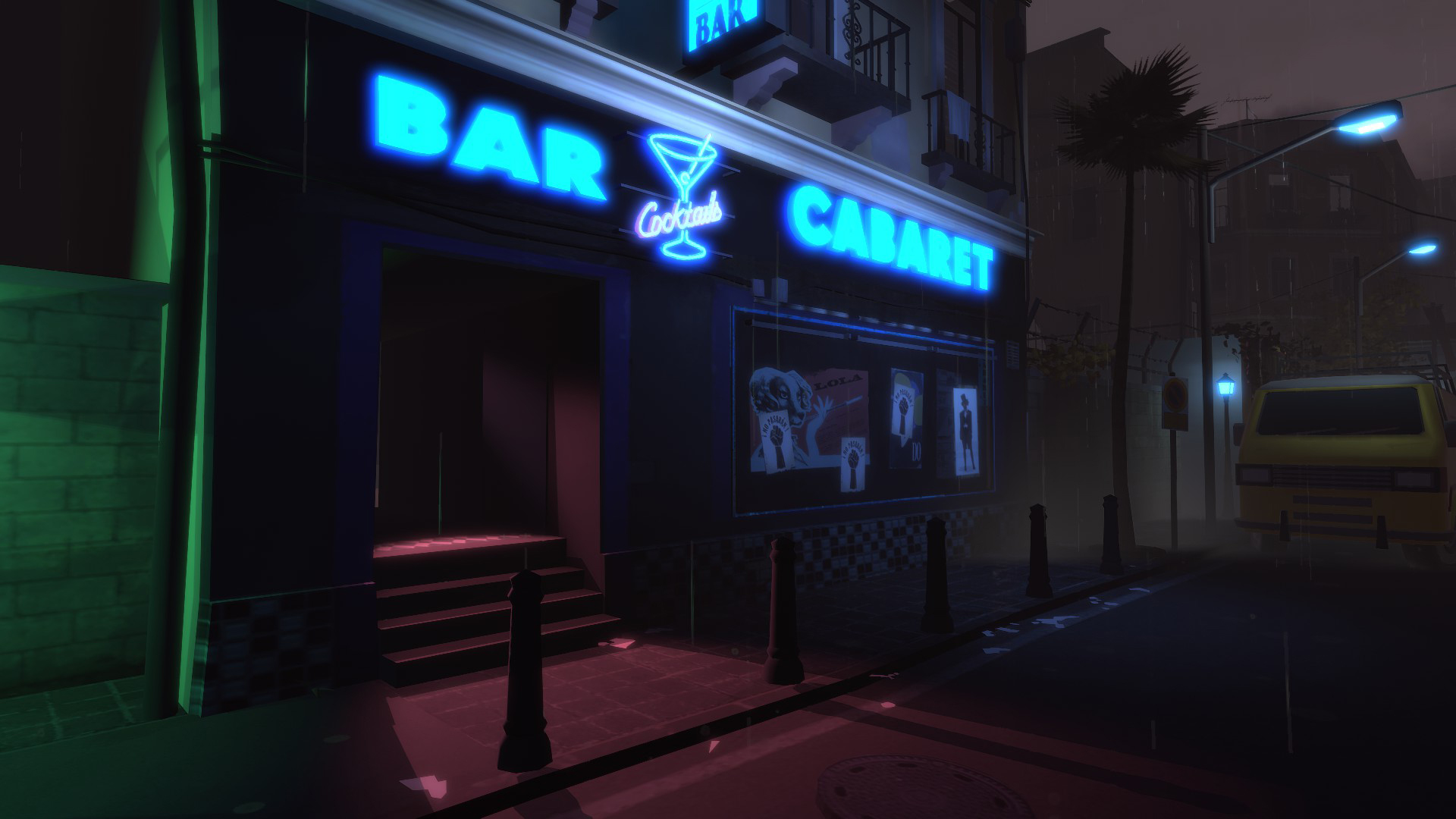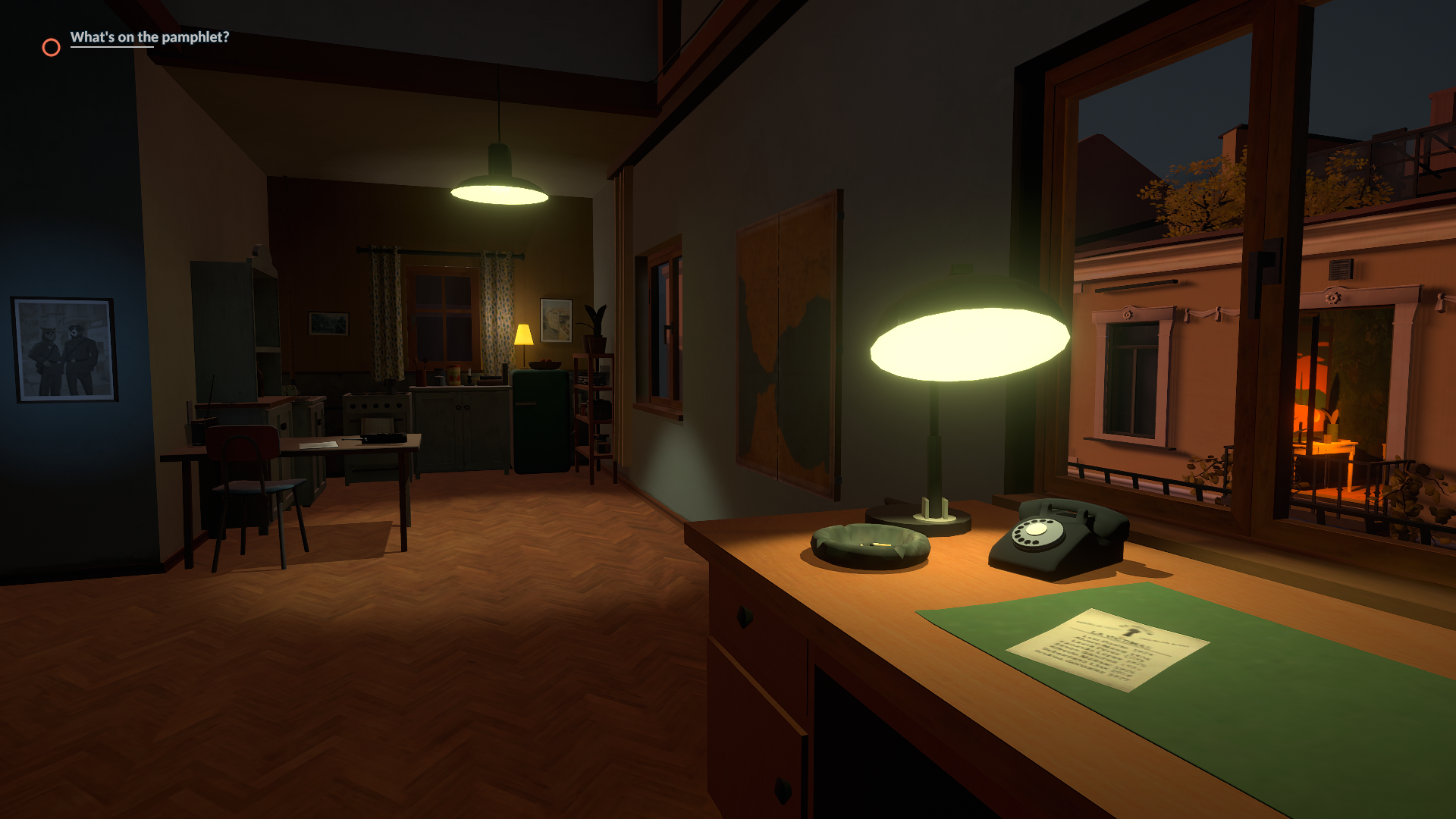The Flower Collectors is a detective game that came out on April 21. While essentially a point-and-click adventure, it offers other mechanics as well, including timed events, and even secondary story storylines. The game features an unusual setting (Barcelona, 1977) and lots of book and movie references while dealing with sensitive topics like privacy and disabilities.
It is the second title from the Austrian studio called Mi’pu’mi Games.
We sat down with Gregor Eigner, founder, CEO & executive producer at Mi’pu’mi, to discuss the studio’s robust production pipeline, political and social agenda in games, and the creation of The Flower Collectors.
Gregor Eigner, founder, CEO & executive producer at Mi’pu’mi
Oleg Nesterenko, managing editor at GWO: Greg, Mi’pu’mi Games is not just an indie studio. You also work as a co-development team embedded in AAA projects like Hitman and Control. How do you balance these activities?
The foundation of Mi’pu’mi is our three business pillars. We work as embedded teams in co-development collaborations with studios like Io Interactive, Remedy Entertainment, or Ubisoft Blue Byte, and furthermore we take on complete sku developments as work for hire projects. These two pillars allow us to enjoy working on our own IPs, like The Lion’s Song and more recently The Flower Collectors. All three pillars are important for the success of Mi’pu’mi and also define our studio culture.
In regards to co-development, we appreciate the enthusiasm and spark of passion in the teams we collaborate with. We choose to work with champions that have the vision and want to create a great game while it must also fit our skillset and experiences.
For our original games, we are looking for a unique angle and a focus on a specific element either in a technical, design or artistic challenge. We continue the journey we started with The Lion’s Song, telling interesting stories during exciting times in Europe, to help evolve games as interactive medium.
We believe each pillar wouldn’t work without the others. Most importantly, we are in a very unique position to offer financial stability to our team in an ever changing industry. Our track record and the 10th anniversary in 2019 are a living proof for that.
Our overarching goal is to always work on at least one own IP.
You are also known to self-publish your games. Could you please tell us how you market them?
Since we are a small team, we believe in trustful partnerships across all disciplines in development, including collaboratins on the PR side once the production has been completed. We have been working for some time now with the PR agency Future Friends that is specialized in indie games promotion. Future Friends came on board early and accompanied the entire communication process starting with the first announcement.
With the release of the acclaimed The Lion’s Song, where we worked with ICO Partners and ONE PR, we were able to build up a quite impressive community on Steam, which helped a lot with promoting The Flower Collectors.
Referring again to our rather small team size, we try to focus on a few channels that fit our games and studio well and do our best to maintain them regularly. Similar to a larger studio with a dedicated communication team, we have weekly meetings to discuss the upcoming beats and prefill a communication release schedule at least 2 weeks in advance. Being organized takes away pressure from releasing PR assets regularly and also increases the quality of your beats.
Every first Friday of each month you hold something called Mi’pu’mi Day. What is it?
Mi’pu’mi Day is held on every first Friday of each month and offers the team to work on something completely different than their day-to-day projects. This includes training, watching GDC vault sessions, reading, exploring new software or bouncing new game ideas. In that regard, this day is like a short game jam.
Mi’pu’mi is covering the lunch, hence this day is also great for team building and hanging out with members of other projects you normally don’t have much contact with.
This day offers a break from the usual routine, keeps the team fresh and creatively motivated to start new endeavours like The Lion’s Song or The Flower Collectors. And we are already working on a new game, that was also originated during a Mi’pu’mi Day.
The Lion’s Song (2016)
So The Flower Collectors was born on a Mi’pu’mi Day. What was the initial idea for the game and why did you decide to pursue it?
We wanted a main character in a wheelchair within the crime/espionage genre, in a time before internet to make the investigation more haptic, less digital. We wanted something outside of stereotypical US crime settings — we read books by French and Spanish authors about the cold war and the Franco era, which ultimately were our main inspiration for the setting.
Every project needs to pass our internal greenlight process, were an advisory board (populated with a representative of each discipline) and management discuss a potential future of such a title. We have these greenlight processes at the end of every development phase, a stage gate the team needs to pass, in order to continue. This allows us to shape a project accordingly and control our investment.
The Flower Collectors was partly funded with a public grant from the Vienna Business Agency. Why did the Agency support this project?
The Vienna Business Agency is a governmental organization supporting the local creative industries including video games. Actually, [the Agency is] a very trustful and long-term partner of Mi’pu’mi, but also of the entire scene in Vienna. It is a very strong signal that the local government is supporting the games industry and believes in the potential of games for the Austrian economy.
In order to qualify for funding you need to pass a two-step process. A first, a jury nominates projects for a shortlist and from there the studios then the chance to present their concepts in front of another independent jury. If you are able to show a strong development case, based on a thorough business plan, the grant will be greenlit.
The Flower Collectors is very different from your previous title, The Lion’s Song. What are the lessons learned from it that you implemented in your new title?
While both titles are narrative games, they have a lot of differences: The Lion’s Song is an episodic game with a consistent over-arching story and a restricted colour palette of 6 colours in 2D. The Flower Collectors is a game in chapters with a single environment, the rooftop apartment, in 3D and voice acting.
We benefited from the experiences from The Lion’s Song with storytelling and writing, while it took more efforts to establish the stage, our plaza in Barcelona. Both titles had their unique challenges and learnings. We hope we can learn and evolve, avoiding doing the same mistakes twice, as this is one of our credos.
Would you say that games are getting more political? There’s Disco Elysium. There’s Through the Darkest of Times. There’s you.
Not necessarily. There have always been controversial topics covered by games. But it is true that we have seen more of these titles recently, which is a strong sign how valuable and important our medium has become in our everyday life. The variety of genres show the richness, but also complexity our industry has reached. It is absolutely cool to see these kinds of stories told in an interactive medium.
The game is set in 1970s in Spain. What are the parallels between that time and now?
[At the time] the Spanish political situation strongly reflected current-day tendencies: government trying to use private information to push its agenda. Also the question of how much privacy can be violated in search of ‘the greater good’ came up.
Given the seriousness of the premise (post-Franco reactionaries vs liberals), why cartoonish art? Why anthropomorphic characters?
We wanted to get away from stereotypes. Our designer was reading fables to his son, and he noticed that each character’s role was usually associated with an animal image. We wanted to actively subvert this, hence some of the animals are contrary to their role in the story.
How did you arrive at the overall aesthetic of the game? Again, it’s super colorful for a crime story. Why?
We watched a lot of French espionage movies and read Le Carre’s Cold War fiction, which influenced the cop/government angle. The main inspiration came from a book called “The Shadow of the Wind.” It’s about the police in a post WW2 Franco era, set in Barcelona. As for Jorge, he was loosely influenced by Det. Hodges in Stephen King’s “Mr. Mercedes”.
But we clearly wanted to avoid the cliché black & white, dark and rainy atmosphere of classic film noir inspirations. When you watch the game closely, you will see another – potentially unseen – character, the weather. It plays an important role to support the narrative and building up the immersion of the journey all characters experience throughout the game. The weather as well as the day / night cycle help to drive the story in the tight scenery of the plaza and reflect on the current player status of the conspiracy mystery.
Frankly, the classic noir style wouldn’t have fit well with Barcelona, an open-minded lively metropole in Europe. Hence the colourful environment, reflecting the hot summer nights in Spain.
If any movies influenced the game, it’s the work by Pedro Almodóvar who combines crime/suspense with intense romantic and humorous topics, usually set in Spanish cities.
The protagonist is confined to his apartment; the world is limited to a plaza. Did you choose this game design because it’s very economical, or were you interested in this setting from the artistic standpoint?
Actually a bit of both. The design process started with lots of research, creating first concepts for characters and environments. This was followed by blocked out geometry to get a feeling for the size, shape and scope of the title. It’s always very important to create a “click-through” version that still contains placeholders as quickly as possible to better understand the aforementioned parameters.
Mi’pu’mi believes that limitations push creativity. In The Lion’s Song, we limited us with pixel art and a 6 colour palette, which forced us to come up with new artistic solutions to drive the narrative and to create the little universe in Vienna. The Flower Collectors offers a limited and overseeable environment, like an intimate theatre play. Despite its small size, we spent a lot of time arranging the buildings surrounding the plaza, trying to place the locations in a perfect way so the story could unfold naturally.
Somebody on Steam said that The Flower Collectors doesn’t offer a lot of gameplay, being more of a walking (sitting?) simulator. Would you agree with this definition?
Well, I’d say this is about it. We are telling a story from the perspective of a person in a wheelchair, so we had to depict all limitations that come along with it. Overall, it is very important for us to stay authentic and believable, hence we spent a lot of time in research to get e.g. an era or region right.
We collaborated with a local Viennese disability consulting firm called “myAbility Social Enterprise,” to better understand the day-to-day experience of a person sitting in a wheelchair. With their help, we were allowed to visit a house of a person depending on a wheelchair, to experience first-hand how a daily routine looks like, what can or can’t be done in a wheelchair in a residence. This person also tested the progress throughout development and gave us valuable feedback for the layout of Jorge’s apartment.
Learning from myAbility, we understand that people in wheelchairs do not experience their live as limited. The wheelchair is a tool of empowerment that helps to enable quite a normal and self-determined life. It was important for us to convey this understanding in Jorge’s behaviour and his own journey throughout the game.
There are no fail states in the game (other than missing details of secondary character’s stories). Piecing together evidence is a cool mechanic, but again, the game won’t let you draw wrong conclusions. Could you explain your thinking behind that?
The main purpose of The Flower Collectors was to tell a very specific story. Often in games, giving the player more choices and room to fail means a less authored narrative.
We wanted to bring the player along for an authored experience, allowing the pacing to keep going without hick-ups (player death/failure). The benefit is very much the same as with a movie. By knowing what conclusions the player draws, we were able to create a directed experience which is important when it comes to dramatic storytelling.
Eric Meyers as Jorge is stellar. The game’s jazzy score is an absolute win. How did you find and work with voice talents and musicians?
We have a pool of partner companies we speak to on a regular basis to pick the right partner for a specific project. In the case of The Flower Collectors, we tried something new and worked with Austrian talent Florian Spies for score and sound design. Florian recorded the score with life instruments and fellow musicians to convey the authenticity we strove for to bring the Barcelona of the 70s alive.
In regards to voice acting, we trusted our long-term partner Side UK, helping us to choose the right voice talent and to provide a stellar recording, which was directed remotely from Vienna by one of our designers. We have English voice overs only, but we wanted Spanish words pronounced as Spanish natives would do. This worked very well for the immersion of our setting in Barcelona, as first reviews confirm.
Finally, if I may ask, what on Earth does Mi’pu’mi mean?
Mi’pu’mi is a Japanese phrase which means “small steps or three steps forward.” Based on the colourful past of our founders, who unfortunately experienced studio closures in their career, they wanted to create a stable and lasting environment. Hence Mi’pu’mi makes smaller bets by considering each future steps carefully. Being around in the industry for more than 10 years, the acclaimed track record we built up and the valuable long-term relationship with AAA partners prove us right.


